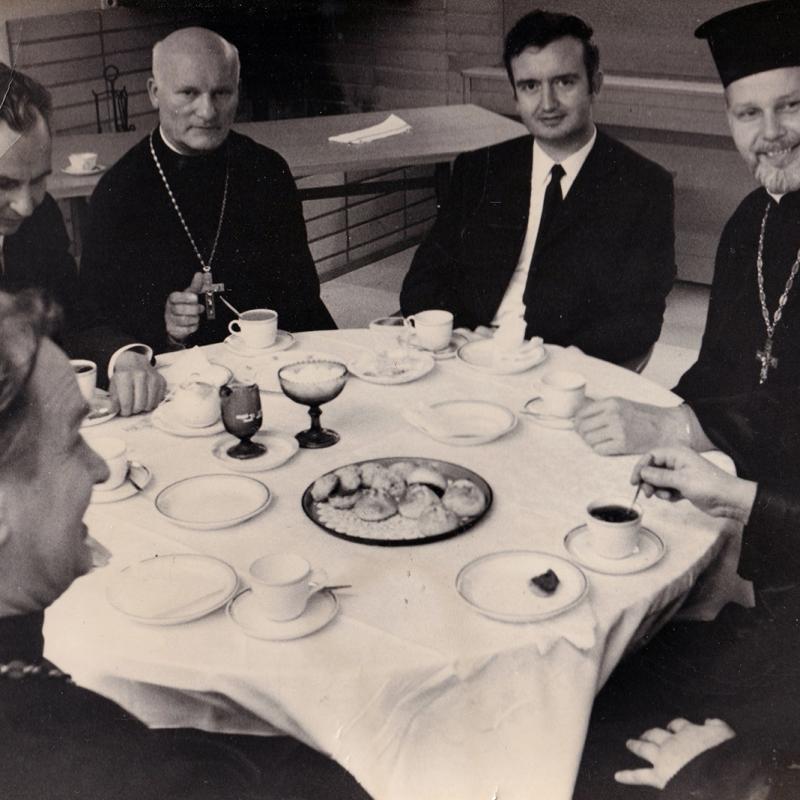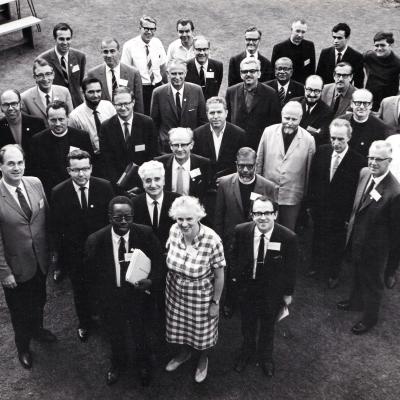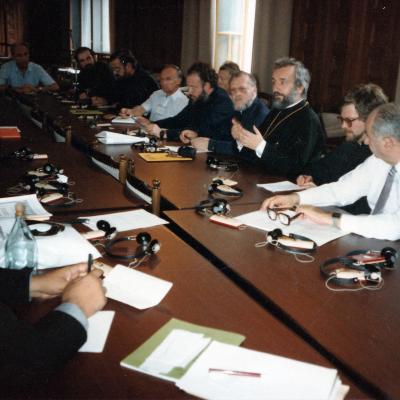Contribution to the theological Commission “Faith and Order” of the World Council of Churches
As the representative of the Ecumenical Patriarchate for many years in this theological section of the CFO, Zizioulas contributed many theological studies, which were the subject of publications in many languages (see list of publications). At the suggestion of Nikos Nisiotes, John Zizioulas was appointed Assistant Secretary of the Commission on Faith and Order of the World Council of Churches from 1967–1970.
The Faith and Order Commission chose him as the main speaker at the World Conference that it organized in Spain in 1993. The theme of this conference and his speech was the concept of “communion” and the unity of Christians. Besides his responsibilities with the “Faith and Order” Commission, Zizioulas was also invited annually to lecture on Orthodox ecclesiology and sacramental theology at the Graduate Institute of Ecumenical Studies in Bossey, close to Geneva.
In addressing the topic “Faith and Order Yesterday, Today, and Tomorrow” at the consultation with younger theologians held at Turku, Finland, August 3–11, 1995, Zizioulas said:
I happened to work in the Secretariat of Faith and Order as a young lay theologian precisely at that critical period (1968–1970). Two things stand out in my mind from my experience of that time. One is the restructuring of the WCC and the incorporation—with a clear danger of absorption—of Faith and Order into what was named “Unit I.” Faith and Order had to struggle to survive as a particular identity in the new structure. The other thing was the apparent difficulty in relating the rich and extremely important theological projects of Faith and Order to the rest of the work of the WCC in an organic way. Studies on the Holy Spirit, the Council of Chalcedon, worship, the councils, etc., stand out as Faith and Order achievements of that time that never found their way into the broader WCC work. It was also at that time that we experienced the rise and fall of the idea of conciliarity as a tool for ecumenical progress.





